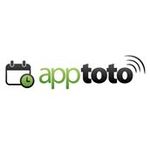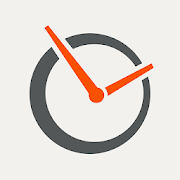Top Appointment Management Softwares
Appointment Management software plays a crucial role in streamlining scheduling processes for businesses across various industries. It automates the booking of meetings, reducing manual efforts and minimizing scheduling conflicts. This type of software enables users to manage appointments efficiently by offering features such as calendar integrations, reminders, and customizable booking pages. By ... Read More
79 companies found
Product Description
Zenoti is a software designed specifically to help businesses in the wellness and beauty industry manage everything from bookings and payments to marketing and customer engagement. Imagine a tool that takes the hassle out of organizing appointments, tracking sales, and running promotions—all in one place. That's Zenoti. For salon and spa owners, keeping track of reservations and managing client i... Read More
Users
- • No Data
Industries
- • No Data
Market Segment
- • No Data
Demandforce
Product Description
Demandforce is a software tool designed primarily for small businesses, especially those in the service industry such as dental practices, automotive services, and salons. It helps businesses grow by improving communication with their customers and streamlining day-to-day operations. At its core, Demandforce makes it easier for businesses to stay connected with their clients. It offers features l... Read More
Users
- • No Data
Industries
- • No Data
Market Segment
- • No Data
Product Description
Tookan is a delivery management software that helps businesses streamline their operations. If your company handles deliveries, managing logistics can be quite a hassle, but Tookan can simplify it for you. This software enables you to monitor, track, and manage your deliveries in real-time with ease. Imagine having all your delivery data in one place, enabling you to make informed decisions quic... Read More
Users
- • No Data
Industries
- • No Data
Market Segment
- • No Data
SimplePractice
Product Description
SimplePractice is a straightforward and efficient software designed for medical and wellness professionals to streamline their day-to-day operations. It's tailored for therapists, counselors, and clinicians who need a user-friendly way to manage appointments, client records, and billing. With SimplePractice, scheduling appointments becomes easy. The software includes a calendar that syncs seamles... Read More
Users
- • No Data
Industries
- • No Data
Market Segment
- • No Data
HealthQuest
Product Description
HealthQuest is a user-friendly software designed to streamline medical practice management for healthcare providers. Built with the needs of medical professionals in mind, HealthQuest aims to simplify the often complex administrative tasks associated with running a healthcare facility. From scheduling appointments and managing patient records to billing and reporting, HealthQuest provides a compre... Read More
Users
- • No Data
Industries
- • No Data
Market Segment
- • No Data
Product Description
Agendize is a software solution designed to make appointment scheduling and customer engagement easier for businesses of all sizes. Whether you're running a small local shop or managing multiple service locations, Agendize helps you streamline your booking process, saving you and your customers valuable time. The software allows customers to book appointments directly online, which means you spen... Read More
Users
- • No Data
Industries
- • No Data
Market Segment
- • No Data
Product Description
Apptoto is a straightforward and reliable scheduling solution designed for businesses of all sizes. It helps you manage appointments efficiently, ensuring better communication and fewer no-shows. Whether you're handling client meetings, medical appointments, or team schedules, Apptoto makes life easier by automating reminders and confirmations. You can sync Apptoto with your existing calendar, so... Read More
Users
- • No Data
Industries
- • No Data
Market Segment
- • No Data
Product Description
vCita is a versatile business management tool designed with small businesses and service providers in mind. It helps streamline daily operations, making administration simpler and giving business owners more time to focus on what they do best. At its core, vCita offers an all-in-one platform to manage appointments, engage with clients, handle payments, and market services. One of its standout fe... Read More
Users
- • No Data
Industries
- • No Data
Market Segment
- • No Data
Product Description
Setmore is a user-friendly appointment scheduling software designed to simplify the booking process for businesses of all types and sizes. It provides a straightforward and efficient way for teams to manage their appointments while providing customers with a seamless booking experience. Setmore offers an intuitive platform where users can easily schedule, reschedule, and cancel appointments with... Read More
Users
- • No Data
Industries
- • No Data
Market Segment
- • No Data
Product Description
BookedIN is a scheduling software designed to help businesses manage their appointments effortlessly. If you run a small business or service-based operation, you know how managing appointments can eat into your day. BookedIN takes that hassle away, allowing you to focus on what you do best—serving your clients. The software offers an easy-to-use platform where clients can book appointments online... Read More
Users
- • No Data
Industries
- • No Data
Market Segment
- • No Data
What is Appointment Management Software?
Understanding Appointment Management Software
Appointment Management software refers to digital solutions designed to facilitate the scheduling and management of appointments across various industries. These tools are essential for businesses and organizations that rely on efficient scheduling systems to organize meetings, consultations, or any form of time-slot management between staff and clients. By deploying Appointment Management software, companies can optimize their operations, reduce no-shows, improve customer experience, and streamline communication.
Core Functionality and Purpose
Appointment Management software primarily aims to automate and manage the workflow associated with booking and scheduling. It enables users to programmatically set appointments by integrating calendar functionalities that can sync with personal and business calendars. This ensures all scheduled events are consistently coordinated, avoiding double bookings or scheduling conflicts. Additionally, these tools commonly offer features like automated reminders for upcoming appointments, which help reduce the rate of missed appointments.
Impact on Businesses
In a busy and dynamic market landscape, Appointment Management software is crucial. For healthcare providers, salons, spas, or corporate environments where client meetings are frequent, such a system is invaluable. It allows businesses to keep comprehensive records of client interactions and appointments, facilitating improved customer relationship management. This efficiency not only fosters higher satisfaction rates but also optimizes staff utilization and availability.
Accessibility and Integration
Modern Appointment Management software usually comes with features that ensure accessibility for both clients and businesses. Cloud-based solutions are particularly popular as they offer real-time booking capabilities, allowing clients to make appointments at their convenience. Simultaneously, these systems provide an array of integration options with other business tools such as CRMs and marketing platforms. This synchronization enhances comprehensive data management and allows for personalized services and follow-up procedures, further improving operational efficiency.
Benefits for Customers
From a consumer perspective, Appointment Management software significantly enhances the ease of interaction with service providers. Customers can access user-friendly online scheduling portals, providing them the flexibility to choose time slots that best fit their schedules. Many of these systems also offer options for rescheduling or canceling appointments, all while keeping the process seamlessly automated and straightforward.
Industry Versatility
Appointment Management software is versatile and adaptable across various sectors. Industries such as healthcare, hospitality, legal, education, and personal services utilize these solutions to manage client interactions efficiently. Each sector requires a unique approach to scheduling, whether that means handling individual consultations in healthcare or organizing group reservations in the hospitality industry. The flexibility offered by such software enables tailored solutions for distinct business needs.
Appointment Management software transforms the way businesses manage their client interactions, offering an organized and efficient method of scheduling and communication. Its use facilitates seamless operations and caters to industry-specific needs, enhancing productivity and customer satisfaction. Therefore, this software stands as a vital component in many modern business infrastructures.
How does Appointment Management Software Improve Scheduling Efficiency?
Appointment Management software plays a critical role in improving scheduling efficiency, offering solutions that streamline the process for both businesses and their clients. This category of software provides a systematic approach to managing time slots, resources, and communication channels, ultimately leading to increased productivity and customer satisfaction.
Automated Scheduling
One of the key features of Appointment Management software is automated scheduling. It eliminates the need for manual entries and follow-ups. Businesses can allow clients to book appointments through an online portal, which syncs with the organization’s calendar. This ensures that time slots are always up-to-date and double bookings are avoided. By automating this process, companies save significant time and reduce human errors.
Real-time Updates
Appointment Management software offers real-time updates on the availability of time slots and resources. This feature allows for instant notifications and adjustments in scheduling as needed. For example, if an appointment is canceled, the software can immediately open the slot for new bookings. This dynamic approach helps maximize resource utilization and ensures that no time is wasted.
Centralized Calendar Management
The ability to integrate with existing calendar systems is another advantage of Appointment Management software. By providing a centralized solution, users can manage multiple calendars from a single interface. This reduces the complexity of handling appointments across different platforms and contributes to a more streamlined workflow. Centralization enhances collaboration within teams, allowing everyone to have clear visibility of schedules.
Intuitive User Interface
The user-friendly interface of Appointment Management software simplifies the scheduling process for customers and staff. A straightforward booking process reduces the time needed for training and onboarding. The intuitive design helps minimize confusion, making it easier for users to select available time slots and confirm their appointments efficiently.
Time Zone Management
For businesses operating in multiple time zones, Appointment Management software offers tools to handle the complexities of scheduling across regions. This prevents miscommunications and errors that could result from time zone differences. Clients can see available time slots in their local time, ensuring they book appointments that suit their schedule.
Automated Reminders and Notifications
Sending automated reminders and notifications is another way Appointment Management software enhances efficiency. Customers receive reminders through email or SMS, reducing the risk of no-shows and increasing adherence to scheduled appointments. This proactive approach ensures both parties are well-informed and prepared.
Reporting and Analytics
Appointment Management software also offers reporting and analytics capabilities. By analyzing patterns in bookings, businesses can identify peak times, frequent cancellations, or resource shortages. This data-driven insight enables organizations to optimize their scheduling processes, improve service delivery, and make informed operational decisions.
Overall, Appointment Management software fundamentally reshapes the scheduling process by introducing automation, real-time updates, and centralized systems. This leads to increased operational efficiency, allowing businesses to focus more on their core services rather than logistical challenges. Through these improvements, businesses can significantly enhance customer experience and satisfaction.
What features should you look for in Appointment Management software?
When evaluating Appointment Management software, businesses should assess different features that align with their operational needs. Here are essential features to consider:
User-Friendly Interface
A straightforward, intuitive interface is vital. Users must navigate the platform without confusion. The design should facilitate smooth operation, even for team members less comfortable with tech. Clear menus and easy steps in Appointment Management software lead to a productive experience.
Online Booking
Empower clients to schedule appointments through an online platform easily. By integrating an online booking system, customers can set appointments at their convenience. This feature increases accessibility and reduces the workload on administrative staff in managing bookings.
Calendar Management
Efficient calendar management is a core feature. The software should provide a central calendar system to view, organize, and manage appointments. A synchronized calendar helps visualize schedules, avoiding overbooking and ensuring availability aligns with appointments made.
Automated Reminders
Automated reminders help reduce no-shows. Appointment Management software often includes customizable SMS or email reminders. Clients receive notifications before their appointment, thus ensuring attendance and minimizing missed appointments.
Integration Capabilities
The ability to integrate with existing tools and systems is beneficial. Look for software that seamlessly communicates with CRM platforms, billing systems, or email services. Proper integration means streamlined operations and ease in managing client information across platforms.
Customization Options
Customization allows the software to cater to specific industry needs. Appointment Management software should offer flexibility in setting appointment types, durations, and client details. Tailoring these aspects ensures the software fits unique operational requirements.
Multi-Platform Accessibility
Supporting various devices like desktops, tablets, and smartphones is crucial. Multi-platform accessibility ensures that both staff and clients can access the system on different devices, providing flexibility for on-the-go management.
Reporting and Analytics
Informed decision-making relies on data. Reporting features in Appointment Management software track metrics like appointment volume and client demographics. Analytics capabilities help in understanding trends, thus optimizing operations.
Secure Data Handling
Data security is a priority. The software should ensure robust security measures such as encryption and backups. This feature protects sensitive client data, maintaining trust and compliance with data protection regulations.
Payment Processing
Integrating payment solutions simplifies billing tasks. Appointment Management software that supports various payment gateways can process transactions efficiently, offering clients the convenience of paying for appointments online or in advance.
Staff Scheduling
Managing staff availability is part of efficient appointment handling. The software should offer tools for setting and adjusting staff schedules, aligning workforce with customer demand. This feature helps in resource optimization and team collaboration.
In conclusion, considering these features can greatly impact how effectively Appointment Management software supports business operations. Each of these elements plays a role in improving client interactions and streamlining internal processes.
How can Appointment Management software benefit small businesses?
Appointment Management software can significantly transform the way small businesses operate by streamlining scheduling processes and enhancing customer interaction. Here’s how:
Time Efficiency
One of the primary benefits of Appointment Management software is the time it saves for small businesses. Manually scheduling appointments can be cumbersome and prone to errors. With automated scheduling, small businesses can reduce administrative burden, allowing staff to focus on more critical tasks. The software often features automated reminders, which help reduce no-show rates and ensure appointments are kept on schedule.
Improved Customer Experience
Appointment Management software enhances the customer experience by providing them with a seamless and convenient way to book services. Customers appreciate the ability to schedule appointments online at their convenience rather than calling during business hours. Many solutions offer mobile-friendly interfaces, ensuring that users can book appointments from any device. The ease of use increases customer satisfaction and loyalty.
Enhanced Organization
By using Appointment Management software, businesses can keep their schedules organized and accessible. This centralization of information makes it simple for staff to view and manage appointments, reducing scheduling conflicts and errors. Small businesses can avoid double bookings and easily accommodate last-minute changes, ensuring a smooth workflow.
Increased Revenue
Efficient scheduling directly impacts a business’s bottom line. Appointment Management software helps maximize available slots, thereby increasing the number of appointments a business can handle. Many systems offer upselling features, such as integrating promotional offers or reminders before the appointment, potentially boosting sales. Additionally, by offering easy online payment options, businesses can improve cash flow.
Data and Analytics
Appointment Management software provides valuable insights through data and analytics. Businesses can track trends, peak booking times, and client preferences to make informed decisions. This allows for better resource allocation, helping small businesses optimize staffing and improve service delivery. Understanding client behavior and preferences also aids in creating targeted marketing strategies.
Scalability
As small businesses grow, their needs evolve. Appointment Management software can scale with the business, accommodating an increasing number of appointments, staff, and locations. The flexibility of software solutions supports not only current operations but also future growth, ensuring that businesses are not limited by their scheduling systems.
Reduced Error Rates
Automated scheduling reduces the likelihood of human error. With Appointment Management software, small businesses can avoid miscommunications, misplaced appointment details, and incorrect information. Reliability in appointment scheduling builds trust with clients and maintains professionalism in the service offered.
Appointment Management software is a vital tool for small businesses looking to improve efficiency, enhance customer satisfaction, and drive growth. By addressing scheduling challenges, it empowers businesses to operate smoothly and focus on their core competencies.
What are the advantages of using cloud-based Appointment Management software?
Accessible Anywhere
One significant advantage of cloud-based Appointment Management software is its accessibility from any location. Users can access the software using any internet-connected device, including smartphones, tablets, and computers. This flexibility means employees can manage calendars and appointments whether they are in the office, traveling, or working remotely. Having this level of accessibility ensures that businesses can maintain consistent communication with clients and staff and adapt quickly to changes or cancellations.
Real-Time Updates
Cloud-based Appointment Management software offers real-time updates. This means that any changes made to an appointment, such as rescheduling or cancellations, are immediately reflected across all devices and users. Real-time updates minimize scheduling conflicts and ensure everyone remains informed on their schedules. This capability is especially crucial in sectors where time-sensitive appointments occur frequently, such as healthcare or legal services.
Cost Efficiency
Utilizing cloud-based solutions for appointment management reduces the need for upfront investments in physical hardware or IT infrastructure. Companies can leverage subscription-based pricing, which provides predictable monthly or annual fees. This model allows businesses to pay only for the features and capabilities they need. Additionally, updates and maintenance are handled by the service provider, reducing ongoing IT costs and the need for in-house technical expertise.
Enhanced Security
Cloud-based Appointment Management software provides enhanced security features that protect sensitive customer data. Providers offer secure data storage solutions, employing measures such as encryption and regular backups to safeguard information. Users can also appreciate peace of mind knowing that if their local device is lost or compromised, their appointment data remains secure and accessible through the cloud.
Scalability
Scalability is a core advantage of using cloud-based Appointment Management software. Businesses can easily scale their use of the software as their needs grow. This includes increased storage capacity, additional user accounts, or more advanced features as the business expands. Scalability ensures that the software remains a viable solution for businesses of varying sizes and across different growth stages, without the need for complete system overhauls.
Integration Capabilities
Cloud-based solutions often offer integration capabilities with other business software. This includes CRM systems, email platforms, and payment gateways. Through these integrations, users can streamline their workflows, improving efficiency and reducing the manual effort required to manage appointments. For instance, integrating with a CRM can automatically update client records when appointments are scheduled or changed.
Improved Customer Experience
Finally, cloud-based Appointment Management software can significantly enhance the customer experience. Clients benefit from features like online booking, automated appointment reminders, and easy rescheduling options. These conveniences reduce the likelihood of missed appointments and improve customer satisfaction. By offering a seamless booking experience, businesses can differentiate themselves in competitive markets and foster stronger client relationships.
Cloud-based Appointment Management software brings numerous advantages by providing accessible, efficient, and secure solutions tailored to meet the evolving needs of modern businesses.
How can Appointment Management software help reduce no-shows?
Appointment Management software plays a crucial role in minimizing no-shows, which remain a persistent issue for businesses relying on scheduled appointments. Frequent appointment cancellations and missed appointments can result in lost revenue and inefficiencies. This software addresses these challenges through several key functionalities.
Automated Reminders
One of the primary ways Appointment Management software reduces no-shows is through automated reminders. This software can send timely reminders via emails, SMS, or push notifications to both clients and staff. These reminders keep the appointment on the client’s radar, lowering the chance of forgetting. Consistent communication ensures that the client is aware of upcoming commitments.
Easy Rescheduling
Appointment Management software simplifies the process of rescheduling, which is another factor in reducing no-shows. Clients often no-show because rescheduling inconvenient appointments can be cumbersome. It allows users to easily change their appointment slots online without having to call or email. This flexibility can greatly improve attendance rates by accommodating unexpected changes in clients' schedules.
Two-Way Communication
Efficient appointment management involves active communication between service providers and clients. Many Appointment Management software solutions offer a two-way communication channel, allowing clients to interact with service providers. If something comes up, clients can promptly communicate changes or cancellations, allowing businesses to adjust their schedules accordingly.
Real-Time Availability
The software provides real-time visibility into available slots, enabling clients to choose the times that best fit their schedule. By allowing more convenient appointment settings, the likelihood of conflicts decreases, thereby lowering the chance of no-shows. Real-time updates ensure that all parties involved have access to the latest schedule.
Deposit and Cancellation Policies
Incorporating deposit requirements and clear cancellation policies within Appointment Management software is another effective strategy to reduce no-shows. A small deposit may deter clients from missing their appointments without proper notice. Policies that outline cancellation fees can also encourage clients to cancel or reschedule promptly rather than simply not showing up.
Personalization
Appointment Management software often includes personalization features that cater to each client's needs and preferences. By personalizing the communication, businesses can make clients feel valued and build stronger relationships. This rapport reduces the likelihood of no-shows, as clients are more committed to their appointments.
Efficient Time Management
The organizational capabilities embedded in Appointment Management software help businesses optimize their time. By efficiently managing appointment slots and reducing idle time due to no-shows, the software contributes to overall productivity gains. Improved time management ensures that spaces left by cancellations are quickly filled with waiting clients.
In summary, Appointment Management software offers a comprehensive toolkit that addresses the root causes of no-shows. Through reminders, rescheduling features, and efficient communication, businesses using this software can significantly decrease the frequency of missed appointments. They can also ensure that both their time and resources are optimally utilized.
How Secure is Your Data with Appointment Management Software?
Appointment Management software plays a crucial role in scheduling and organizing appointments across various sectors. As this software often handles sensitive information such as personal details, it is essential to understand the security measures in place.
Data Encryption
One of the primary methods employed by Appointment Management software to ensure data security is encryption. Data is encrypted both in transit and at rest, utilizing high-standard protocols such as AES (Advanced Encryption Standard). This ensures that sensitive information, such as client details and appointment history, remains safe from unauthorized access.
Access Controls
Appointment Management software typically implements robust access controls. Only authorized users can access specific data, ensuring that sensitive information is only viewed by those with verified credentials. Role-based access control (RBAC) is often used to assign permissions based on the user's role within an organization, further securing data by limiting unnecessary access.
Regular Security Audits
Regular security audits are a common practice in the Appointment Management software category. These audits help identify vulnerabilities within the system and ensure compliance with industry standards. Regular assessments keep the software updated against emerging threats, maintaining a secure environment for user data.
Secure User Authentication
Secure user authentication is vital for protecting data within Appointment Management software. Often, this involves multi-factor authentication (MFA), requiring multiple forms of verification before granting access. MFA adds an extra layer of security, reducing the risk of unauthorized data access even if login credentials are compromised.
Data Backup and Recovery
To protect against data loss, Appointment Management software usually includes a robust data backup and recovery strategy. Regular backups ensure that information is recoverable in the event of a hardware failure or security breach. This practice minimizes downtime and data loss, maintaining the integrity of sensitive information.
Compliance with Legal Standards
Appointment Management software often adheres to strict compliance standards such as GDPR (General Data Protection Regulation) and HIPAA (Health Insurance Portability and Accountability Act). Compliance with these regulations ensures that the software meets specific data protection requirements, safeguarding personal information and maintaining user trust.
Secure API Integration
Many Appointment Management software solutions offer secure API integrations. These APIs are designed to connect various services while maintaining data security. Secure APIs undergo rigorous testing to ensure data is exchanged safely, preventing unauthorized access during integrations.
Regular Software Updates
Frequent software updates play a vital role in ensuring the security of Appointment Management software. These updates patch vulnerabilities, introduce improvements, and adapt to evolving security threats. Staying current with updates is crucial for maintaining robust protection against potential risks.
Physical Security Measures
In addition to digital security practices, Appointment Management software providers often employ physical security measures for the data centers where information is stored. This includes round-the-clock surveillance, access controls, and environmental safeguards to protect data against physical threats.
Understanding the security measures in place for Appointment Management software is essential for mitigating the risks associated with handling sensitive information. From encryption to compliance, a variety of methods work together to provide a secure environment for data management.









